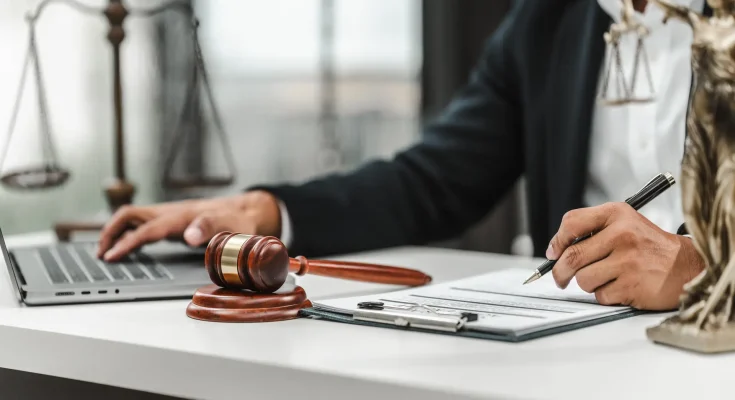Accidents happen every day in Atlanta, from fender-benders on I-285 to slip-and-fall incidents in busy shopping centers. When these accidents result in injuries, victims often face mounting medical bills, lost wages, and physical pain. Understanding when and why to hire a personal injury attorney in Atlanta can make the difference between receiving fair compensation and struggling with financial hardship.
Understanding Personal Injury Law in Georgia
Personal injury law, also known as tort law, allows injured individuals to seek compensation when someone else’s negligence or intentional actions cause harm. In Georgia, personal injury cases operate under specific statutes and legal principles that can significantly impact your case outcome.
Georgia follows a “modified comparative negligence” rule, meaning you can recover damages even if you’re partially at fault for an accident, as long as you’re less than 50% responsible. However, your compensation will be reduced by your percentage of fault. For example, if you’re found 20% at fault in a car accident, your compensation would be reduced by 20%.
Statute of Limitations in Georgia
One of the most critical aspects of personal injury law in Georgia is the statute of limitations. Generally, you have two years from the date of injury to file a lawsuit. This deadline is strict, and missing it typically means losing your right to seek compensation entirely. However, certain circumstances can extend or modify this timeframe, making legal consultation essential.
Common Types of Personal Injury Cases in Atlanta
Atlanta’s bustling urban environment creates various scenarios where personal injuries occur. Understanding these common types can help you recognize when legal representation might be necessary.
Motor Vehicle Accidents
Car accidents represent the majority of personal injury cases in Atlanta. The city’s heavy traffic, complex interstate system, and diverse driving conditions contribute to thousands of accidents annually. These cases can involve cars, trucks, motorcycles, pedestrians, and cyclists.
Determining fault in Atlanta traffic accidents often requires thorough investigation, including police reports, witness statements, traffic camera footage, and accident reconstruction. Insurance companies frequently dispute claims or offer inadequate settlements, making experienced legal representation valuable.
Premises Liability Cases
Property owners in Atlanta have a legal duty to maintain safe conditions for visitors. Premises liability cases include slip-and-fall accidents, inadequate security incidents, swimming pool accidents, and injuries caused by defective conditions on someone else’s property.
These cases require proving that the property owner knew or should have known about the dangerous condition and failed to address it reasonably. Georgia law categorizes visitors differently—invitees, licensees, and tresppassers—with varying levels of protection under the law.
Medical Malpractice
Medical malpractice occurs when healthcare providers fail to meet accepted standards of care, resulting in patient injury. Georgia has specific requirements for medical malpractice cases, including expert witness testimony and adherence to particular procedural rules.
These cases are particularly complex, often requiring extensive medical knowledge and significant resources to pursue successfully.
When You Need a Personal Injury Attorney
While not every accident requires legal representation, certain situations strongly suggest the need for a personal injury attorney in Atlanta.
Serious Injuries with Long-term Consequences
If your injury requires extensive medical treatment, results in permanent disability, or affects your ability to work, professional legal help becomes crucial. Calculating future medical expenses, lost earning capacity, and pain and suffering requires expertise that insurance companies often don’t offer in their initial settlements.
Disputed Liability
When fault is unclear or disputed, having an attorney investigate and build your case becomes essential. Insurance companies may try to shift blame or minimize their insured’s responsibility, and legal representation helps level the playing field.
Insurance Company Challenges
If an insurance company denies your claim, offers an unreasonably low settlement, or delays processing without justification, an attorney can protect your interests and negotiate effectively on your behalf.
Complex Legal or Medical Issues
Cases involving multiple parties, commercial vehicles, government entities, or complex medical questions benefit from professional legal guidance. These situations often involve intricate laws and procedures that non-lawyers find difficult to navigate.
The Legal Process: What to Expect
Understanding the legal process helps demystify what happens after hiring an attorney. Initially, your lawyer will investigate the case, gather evidence, and handle communications with insurance companies. Many cases settle during this phase without going to court.
If settlement negotiations fail, your attorney may file a lawsuit. This begins the “discovery” phase, where both sides exchange information and evidence. Most cases still settle during this period, but some proceed to trial where a judge or jury determines the outcome.
Choosing the Right Attorney
When selecting a personal injury attorney in Atlanta, consider their experience with cases similar to yours, their track record of successful outcomes, and their approach to client communication. Many personal injury attorneys work on a “contingency fee” basis, meaning they only get paid if you receive compensation.
Key Takeaways
Personal injury law in Georgia provides important protections for accident victims, but navigating these cases successfully often requires professional legal assistance. Whether you need a personal injury attorney in Atlanta depends on factors like injury severity, case complexity, and insurance company cooperation. Understanding your rights, Georgia’s legal requirements, and when to seek help can significantly impact your ability to recover fair compensation for your injuries. Remember that the two-year statute of limitations makes prompt action essential if you’re considering legal action.




